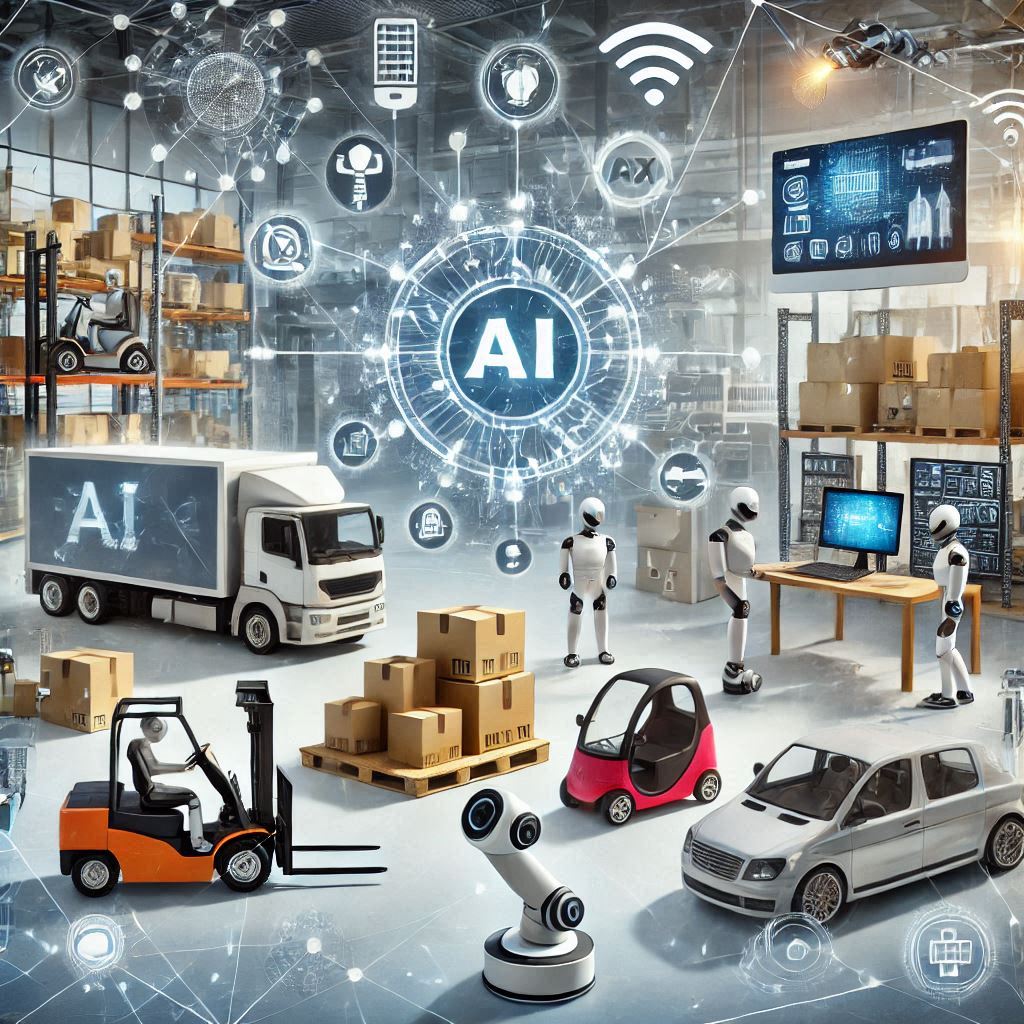Artificial Intelligence is revolutionizing the world as we know it. From automating repetitive tasks to uncovering insights that were previously out of reach, AI is driving innovation across multiple sectors. In this article, we’ll uncover how five industries are leveraging AI to unlock unprecedented potential and redefine their futures.
1. Healthcare
Revolutionising Diagnostics and Treatments
AI-powered imaging systems are drastically improving the accuracy of diagnostics. Tools like IBM Watson Health analyze medical images to detect diseases such as cancer at earlier stages. Additionally, predictive analytics is helping healthcare professionals prevent diseases by identifying high-risk patients before symptoms appear.
Personalized Medicine
Gone are the days of one-size-fits-all treatments. Machine learning algorithms analyze genetic data, lifestyle choices, and other factors to create customized treatment plans, offering better outcomes for patients.
Administrative Efficiency
From scheduling appointments to processing insurance claims, AI automation is handling administrative tasks that once consumed significant time. This allows healthcare workers to focus on patient care rather than paperwork.
2. Finance
Fraud Detection and Prevention
AI algorithms monitor financial transactions in real-time, flagging suspicious activities that could indicate fraud. This not only protects consumers but also helps banks and financial institutions save billions annually.
Algorithmic Trading
AI-driven trading platforms execute buy and sell orders faster and with greater precision than human traders, capitalizing on market trends in milliseconds.
Customer Service Improvements
Virtual assistants and AI chatbots are transforming how financial institutions interact with customers. These systems provide 24/7 support, answer questions, and even assist with account management, enhancing the overall customer experience.
To learn more about the financial benefits of AI implementation, check out our article on The ROI of Automation: How AI Saves Time and Money.
3. Logistics and Supply Chain Management
Optimizing Supply Chains
AI-powered tools analyze historical data and market trends to forecast demand more accurately, ensuring the right products are in stock when needed.
Autonomous Vehicles and Drones
From self-driving trucks to delivery drones, AI is enabling faster and more efficient delivery systems, reducing costs and improving customer satisfaction.
Inventory Management
With AI, businesses can monitor inventory in real-time, minimizing waste and ensuring optimal stock levels.
4. Retail
Enhancing Customer Experience
AI assistants like Amazon’s Alexa or Google Assistant are helping shoppers find products, while personalized recommendation engines suggest items based on browsing history and preferences.
Inventory and Pricing Optimization
Retailers use AI to implement dynamic pricing, adjusting prices based on demand, competitor actions, and other factors to maximize profits.
Fraud Prevention in E-commerce
AI systems detect unusual activity on e-commerce platforms, safeguarding transactions and building trust among consumers.
5. Manufacturing
Smart Factories
Predictive maintenance powered by AI ensures that machinery operates efficiently, reducing downtime and avoiding costly repairs.
Quality Assurance with AI
AI-driven inspection systems detect defects in real-time, ensuring that only high-quality products leave the production line.
Workforce Transformation
Rather than replacing workers, AI is enhancing their capabilities, allowing human employees to focus on complex tasks while machines handle repetitive processes. Read more on how AI is reshaping the future of work.
Challenges and Ethical Considerations
While AI offers immense benefits, it also raises challenges. Ethical concerns like bias in algorithms, data privacy, and the potential for job displacement need to be addressed. Businesses and policymakers must work together to create frameworks for responsible AI adoption.
Conclusion
AI automation is undeniably reshaping industries, unlocking new levels of efficiency and innovation. While the journey comes with challenges, the potential benefits far outweigh the risks. By embracing AI responsibly, we can create a future where technology works hand-in-hand with humans to achieve extraordinary outcomes.
FAQs
1. What is AI automation?
AI automation refers to the use of artificial intelligence to perform tasks that typically require human intelligence, such as decision-making, problem-solving, and data analysis.
2. How is AI improving healthcare diagnostics?
AI systems analyze medical data with incredible accuracy, helping doctors detect diseases early and recommend more effective treatments.
3. Can AI completely replace human workers?
While AI can handle repetitive tasks, it is unlikely to replace humans entirely. Instead, it complements human efforts by enhancing productivity.
4. What are the risks of using AI in finance?
Risks include data breaches, algorithmic errors, and ethical concerns like bias in lending decisions.
5. How can businesses adopt AI successfully?
Start small, invest in quality data, and partner with AI experts to implement scalable and ethical solutions.



A WordPress Commenter
December 27, 2024Hi, this is a comment.
To get started with moderating, editing, and deleting comments, please visit the Comments screen in the dashboard.
Commenter avatars come from Gravatar.